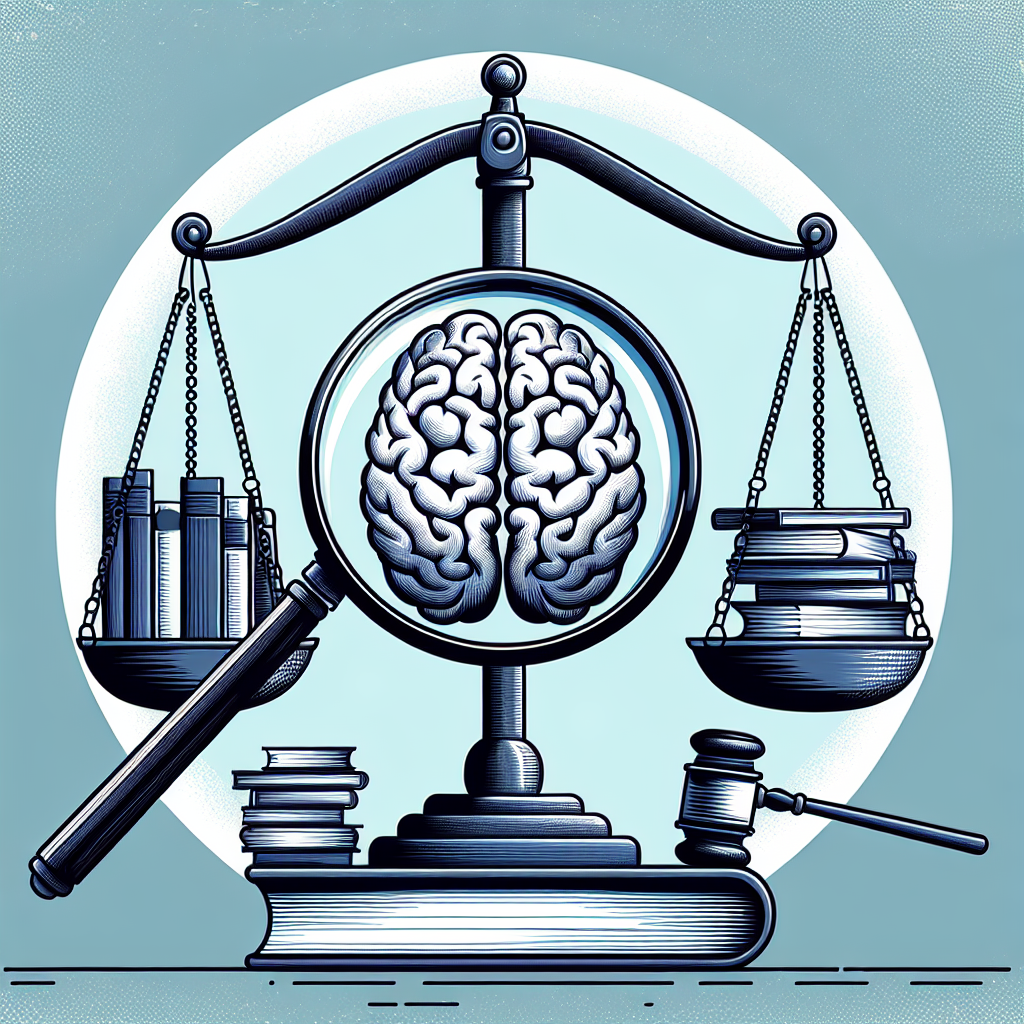
Introduction
In an age where misinformation can spread like wildfire, the role of forensic psychology is under intense scrutiny. "Forensic Psychology Under Scrutiny: Balancing Truth and Responsibility" is more than just a topic; it embodies the delicate interplay between psychological assessment and justice system accountability. How do we ensure that the insights of forensic psychologists support truth without overshadowing individual rights? As the legal landscape evolves, so does the imperative to navigate these murky waters carefully.
The Importance of Forensic Psychology
Forensic psychology merges the complexities of psychology with the intricacies of the legal system, providing invaluable insights into criminal behavior, witness reliability, and the mental state of defendants. As this field continues to grow, its impact becomes increasingly significant, yet the ethical questions and responsibilities associated with it must be vigorously explored.
The Foundations of Forensic Psychology
Defining Forensic Psychology
At its core, forensic psychology encompasses an array of activities involving psychological principles applied to legal issues. From evaluating the mental competence of defendants to assessing risks of reoffending, the psychologist’s role is both crucial and complex.
The Legal Context
The intersection of psychology and law has been a subject of interest since the early 20th century. With legal cases featuring psychiatrists and psychologists in the courtroom, the responsibility to balance professional insights with legal truths has never been more critical.
Ethical Guidelines in Forensic Psychology
Ethics are paramount in forensic psychology. Psychologists must adhere to guidelines set forth by organizations like the American Psychological Association (APA). These guidelines emphasize competence, confidentiality, and informed consent but often clash with the demands of legal proceedings.
Case Studies: The Complexities of Real-World Applications
Case Study 1: The Trial of John Wayne Gacy
John Wayne Gacy, a notorious serial killer, became the embodiment of societal fears about mental health and criminality. A forensic psychologist’s assessment of Gacy’s mental state raised questions about the reliability of psychological evaluations in high-stakes cases. Gacy’s diagnosis of antisocial personality disorder was used as a rationale for his actions but also sparked debates about the responsibility of forensic psychologists to present unbiased information.
Analysis: This case illustrates the ethical dilemma faced by forensic psychologists. While offering their expertise is essential, the implications of their assessments can have far-reaching consequences in criminal cases.
Case Study 2: The Framing of the Central Park Five
In the late 1980s, five Black and Latino teenagers were wrongfully convicted of assaulting a jogger in Central Park. Psychological coercion during interrogations played a significant role in their false confessions. Expert testimonies from forensic psychologists later highlighted the reliability issues inherent in such confessions under duress, emphasizing the need for improved practices.
Analysis: This case showcases forensic psychology’s ability to serve justice by uncovering biases within the judicial system. It calls for heightened awareness regarding the responsibility of both law enforcement and forensic experts.
The Double-Edged Sword of Psychological Insights
Risks of Over-reliance on Psychological Assessments
As forensic psychology gains traction, a growing concern is the over-reliance on psychological evaluations in legal settings. While expert opinions are valuable, they can lead to a cognitive bias among jurors and judges.
Table: Possible Biases from Psychological Assessments in Court
| Type of Bias | Description |
|---|---|
| Confirmation Bias | Favoring information that confirms prior beliefs |
| Fundamental Attribution Error | Overemphasizing personality over situational factors |
| Hindsight Bias | Believing outcomes were predictable after they occur |
The Ethical Dilemma of Testimony
Forensic psychologists often find themselves in the uncomfortable position of serving as advocates in a court of law. Their dual role means they must find ways to maintain objectivity while providing expert testimony, thus balancing the scales of truth and responsibility.
The Future of Forensic Psychology
Innovations and Challenges
Advancements in technology, such as artificial intelligence, are starting to play a role in forensic psychological evaluations. Techniques like predictive analytics could transform how assessments are conducted.
However, the adoption of technology poses ethical challenges that must be addressed. Data privacy, algorithmic biases, and the nature of human judgment are essential discussions in this evolving field.
Training and Education
Educational programs for forensic psychologists must adapt to these advancements while emphasizing ethics and critical thinking. Training should also focus on reducing biases and improving assessment tools for increasing accuracy and reliability.
Conclusion
The examination of "Forensic Psychology Under Scrutiny: Balancing Truth and Responsibility" reveals a field at a crossroads. As advancements in technology and societal attitudes towards justice evolve, so too must the practices and guidelines governing forensic psychology.
To foster a more responsible practice, it’s crucial to prioritize ethical standards, ongoing education, and collaboration across disciplines. Forensic psychologists have a unique opportunity to bridge the gap between mental health and justice, ensuring that truth prevails without sacrificing individual rights.
Actionable Takeaway
As individuals interested in the field, advocate for continuous education and ethical guidelines while also supporting the mental health of community members. By balancing truth and responsibility, we can create a more equitable justice system.
FAQs
1. What is forensic psychology?
Forensic psychology is the application of psychological principles to legal matters, focusing on the assessment and treatment of individuals involved in the criminal justice system.
2. Why is forensic psychology under scrutiny?
Forensic psychology is under scrutiny due to ethical concerns, potential biases, and the consequences of misinterpretations in legal settings.
3. How can forensic psychologists balance truth and responsibility?
By adhering to ethical guidelines, maintaining objectivity, and utilizing evidence-based practices, forensic psychologists can effectively balance truth and responsibility.
4. What role does technology play in forensic psychology?
Technology enhances assessment techniques but raises ethical concerns related to data privacy and algorithmic biases.
5. How can the public become more informed about forensic psychology?
Engaging in discussions, attending workshops, and utilizing credible resources can help the public understand the intricacies of forensic psychology and its implications in the justice system.
Through careful examination of "Forensic Psychology Under Scrutiny: Balancing Truth and Responsibility," we underscore the importance of maintaining the highest ethical standards and the need for continuous discourse in the realm of justice and mental health.















